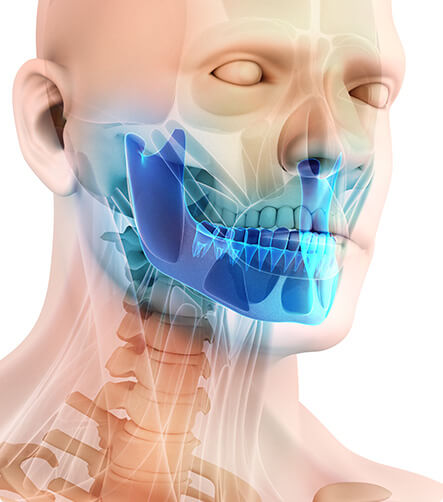TMJ/TMD Therapy in Burleson, TX
When the nerves and muscles in the jaw become damaged or fatigued, it can lead to pain and tenderness in the jaw, ear, and face. Whether TMJ is a mild annoyance in your life or a daily struggle, our team at Cherry Blossom Family Dentistry has the tools and expertise necessary to relax tense jaw muscles and relieve TMJ pain. To learn more about our TMJ services and to schedule an appointment with us, please get in touch with our office.
Get In Touch
What is TMJ/TMD?
TMJ and TMD are typically used interchangeably, and both are used to refer to pain in the jaw and surrounding muscles. TMJ stands for temporomandibular joint, and TMD stands for temporomandibular joint disorder. The cause of TMD is not always clear, but symptoms are usually brought on by trauma , like a blow to the jaw, or severe teeth grinding or clenching. It can also be caused by arthritis or other autoimmune diseases. Regardless of the cause, TMD can be difficult to deal with and make everyday tasks much harder than they need to be, which is why our team loves helping patients find non-invasive ways to combat TMD and get back to living fully again.

Signs of TMJ
The symptoms of TMJ can range from mild pain in the temporomandibular joint to daily headaches and ear pain. If you are experiencing one or more of the following symptoms, we’d like to invite you to schedule an appointment with our team:
- Pain in the jaw, ear, or face
- Pain or difficulty chewing
- Frequent headaches or migraines
- Clicking sound in jaw
- Limited mobility of jaw
- Difficulty or inability to open mouth

Treatment Options for TMJ
TMJ might sound like a disorder that would be treated in a physician’s office, but dentists receive extensive training on the human jaw and are well equipped to help patients who are suffering from teeth clenching, grinding, and jaw pain.
Our team can teach you physical therapy exercises that can be done at home to stretch the jaw muscles and relieve some of the tension that is built up. We can also create a custom mouthguard for you to wear while sleeping at night, which will prevent the jaw from clenching and thus, prevent any pain, tension, or headaches during the day. For more serious cases, we can also prescribe muscle relaxants.
Contact UsCan TMJ go away on its own?
Some patients only experience teeth grinding and TMJ problems during particularly stressful points in their lives, and their symptoms disappear afterward. For others, TMJ and its symptoms show up semi-regularly or are a constant problem. If you wake up with jaw pain or soreness, even on a semi-regular basis, we recommend seeking treatment for it. You may not need to wear your mouthguard every single night, but it’s always better to have it on hand than to risk damaging your teeth, gums, or jawbone.
What happens if TMJ is left untreated?
The jaw muscles are some of the strongest muscles in the human body. When the teeth clench and grind together on a nightly basis, it can cause serious damage to the teeth and cause the gums to recede. In serious cases, jawbone damage can occur, and surgery may become necessary. Continual clenching can also cause limited mobility of the jaw, and patients may find themselves unable to open their mouths very much at all. We always recommend that patients schedule a consultation with our office sooner rather than later.
Contact Us
